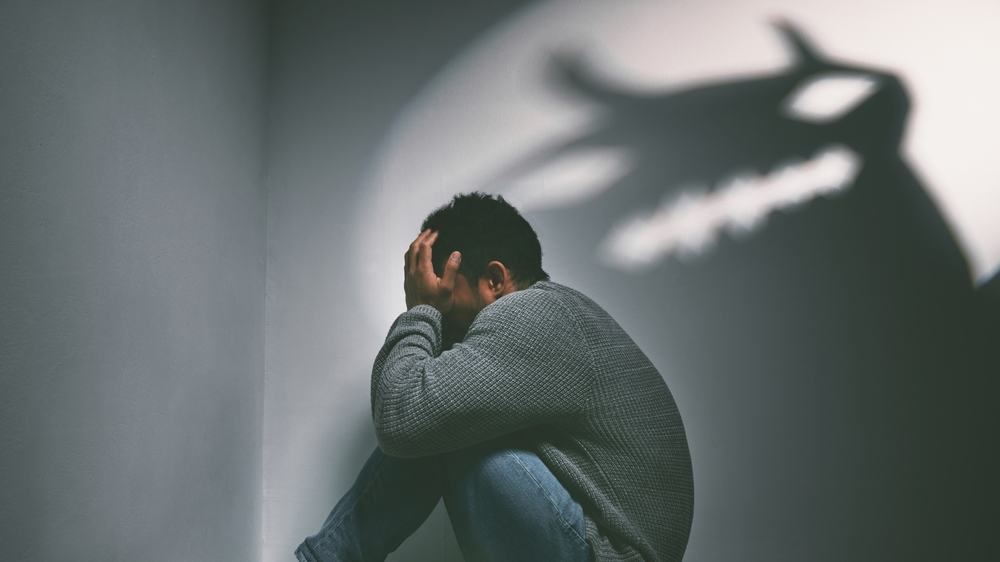Can you get PTSD from a car accident? When a person is involved in a car accident, it can have long-lasting effects on their life. It is estimated that nearly half of all car crash survivors develop some form of Post Traumatic Stress Disorder (PTSD) as a result of their accident. When this happens, it can significantly impact the way you live your life moving forward.
If you’re one of those people, you’re probably looking for ways to manage your symptoms and get your life back on track. Luckily, there are professionals like car accident chiropractors who specialize in helping patients deal with the aftereffects of car accidents. Reducing the amount of stress that comes from the aftermath of an accident is essential when trying to recover from PTSD. A good place to start is by seeing a chiropractor after a car accident.
Why Does A Car Accident Cause PTSD?

When you experience a traumatic event like a car accident, your body releases stress hormones like cortisol and adrenaline. These hormones help you respond to the danger and also help you remember the details of the experience so that you can avoid the same situation in the future. Unfortunately, these hormones also interfere with the natural healing process in your body. Because the experience was so traumatic, your body goes into a “fight or flight” mode and stays in that mode while recovering. During this time, your body doesn’t function as it normally would and can experience a wide range of symptoms like high blood pressure, rapid heartbeat, headaches, muscle tension, and much more.
Since your body is not functioning normally, it also does not heal properly. This is why so many people who experience trauma like a car accident develop PTSD. When the body is in this “fight or flight’ mode, it also begins to shut down other areas of functionality such as the digestive system and the immune system.
PTSD Symptoms: How Does Car Crash PTSD Affect The Body?
Not only does a traumatic event affect how your body heals, but it also affects how it functions long-term. PTSD can cause a wide range of symptoms that can affect your quality of life. Many of these symptoms are caused by the overproduction of stress hormones and neurotransmitters that are not properly regulated.
- Sleep disruption: When your body is constantly in fight or flight mode, it’s very difficult to fall asleep and stay asleep. PTSD can cause nightmares, insomnia, and sleep apnea. It can also significantly reduce the amount of REM sleep that your body needs to heal.
- Digestive issues: People who experience PTSD often have digestive issues due to the stress response. It’s common for people with PTSD to experience stomach cramping, indigestion, diarrhea, or constipation. –
- Anxiety: One of the most common symptoms of PTSD is anxiety. It’s estimated that nearly 90% of people with PTSD also have some form of anxiety. Anxiety can cause panic attacks, shortness of breath, and feelings of dread.
- Pain: Many people who experience PTSD also experience chronic pain. This pain is often headaches, back pain, joint pain, or pain in the muscles.
- Immune system issues: PTSD can cause issues with the immune system and make it harder for your body to fight off infections. It can also make it more difficult to recover after surgery or injuries.
- Mood swings: PTSD can cause mood swings and make it difficult to regulate your emotions.
- Brain fog: It’s not uncommon for people with PTSD to experience brain fog. Brain fog makes it difficult to think clearly, organize your thoughts, and complete tasks.
How Is PTSD Diagnosed?
It can be difficult to diagnose PTSD. Not every person who experiences a car crash will experience PTSD, and not every person with PTSD will have been involved in a car crash. There is no single test that can be given to everyone who has experienced trauma to determine whether or not they have PTSD. Instead, a trained professional will ask you a of questions about what happened and how you are feeling as a result. They series will try to rule out other conditions that can cause similar symptoms such as anxiety or depression.
Can Chiropractic Care Treat PTSD After An Accident?

If you’re wondering how can chiropractic help with PTSD, think about how when the body is in less pain, it is much easier to relax and sleep. Chiropractic care can be an effective way to treat symptoms of PTSD after a car accident. Chiropractic care works to improve overall health and help the body heal. It also helps to reduce pain and increase the range of motion in the body. All of these things can help reduce the symptoms of PTSD. See how else chiropractic care and PTSD works below.
Chiropractic Care Helps Relieve PTSD Through Pain Management
Many individuals who suffer from PTSD experience chronic pain as a result of their traumatic experience. It is estimated that up to 80% of individuals who suffer from PTSD have chronic pain. Chiropractic care can provide relief to those suffering from chronic pain by helping to alleviate and manage the symptoms of PTSD. One way that chiropractic care can do this is by reducing the level of stress in an individual’s body. Stress can contribute to inflammation, which can increase the level of pain and discomfort felt by an individual suffering from chronic pain. By reducing the level of stress in an individual’s body, chiropractic care can help reduce the physical symptoms of PTSD and help to relieve the chronic pain that many individuals suffer from.
Chiropractic Care Increases The Body’s Range Of Motion
Improving range of motion is essential for people with PTSD. People who experience injuries after a traumatic event often have limited range of motion. This is because the body goes into a “fight or flight” response when it is injured. This response shuts off blood flow to injured tissues and slows the healing process. When the tissues don’t heal properly, they are less mobile. This can lead to pain and further complications over time. If you have PTSD after a car accident, it’s important to maintain proper range of motion in your joints. This can help you avoid serious complications like blood clots and permanent joint damage. It can also help you regain a sense of normalcy.
Chiropractic Care Helps Reduce Anxiety
Chiropractic care can help reduce anxiety because it loosens tight muscles that may be contributing to the feeling. By reducing tension and improving mobility, chiropractic care can have a positive impact on your mental health. In addition, some people with anxiety find that they are more likely to experience stress and anxiety when they are sitting or lying down. Working to improve physical flexibility through regular chiropractic care can help you avoid these situations and maintain a healthy posture.
Chiropractic Care Helps Balance Hormones
Chiropractic care can help balance hormones that are out of whack in people with PTSD. PTSD can cause issues with the endocrine system. When this happens, it’s common for people to experience symptoms like weight gain, hair loss, and muscle loss. Chiropractic care can help to regulate the hormones that are causing these symptoms. This can help you to feel more like yourself again and reduce the symptoms of PTSD. One of the most common hormone imbalances that people with PTSD experience is with cortisol. People often have a difficult time managing the amount of cortisol in their system. This can make it difficult to relax, sleep well, and feel normal again.
Car Accident Chiropractors Helps With Overall Injury Recovery
Finally, when you visit a chiropractor after an accident, you are receiving treatment for your injuries. This can help you to recover from your injuries faster. In many cases, PTSD chiropractic care can allow you to heal faster than if you weren’t receiving treatment at all. This means that you can get back to your normal life sooner rather than later. When you have been injured in a car accident, you must get treatment for your injuries as soon as possible.
Visiting a chiropractor at Affordable Chiropractor in Killeen, Texas will help you to heal faster so that you can get back to your normal life sooner. This will help you to manage your car crash PTSD symptoms while getting your life back on track. Book an appointment today to start your healing journey with chiropractic care.

